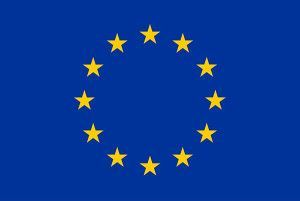It will allow users to identify themselves to the administration.
Innovation uses the European blockchain network as a base
Gradiant’s digital wallet, developed within the IMPULSE (Identity Management in Public Services) project, will allow citizens to identify themselves to institutions and entities in a secure and private way. This has been certified by the European blockchain network, EBSI, which has just identified Gradiant’s innovation as one of the secure identity proofs compatible with the regulatory model for the digital identification of citizens. It is one of the first e-wallets to receive the European-wide seal of conformity.
Gradiant’s digital wallet is intended to replace existing digital certificates and facilitate European citizens’ dealings with national and international administrations. The innovation is based on the concept of digital identity and collects in an app the data in a secure and verifiable way so that they can be presented to any institution by simply scanning a QR code. Gradiant’s project will be ready for massive use in February next year and has already been tested by six public administrations in five countries. The aim is that it can be used by citizens of all EU countries, regardless of their culture and level of digitalisation.
Ready for the digital wallet
“IMPULSE is an example of how sometimes technology is ahead of legislation. The European Commission is in process to adopt new regulations for the remote identification of citizens with the administration and the use of digital wallets. Impulse’s technology already makes this possible. We are working to be ready as soon as the new regulation is approved and it can be used globally” explains Luis Pérez-Freire, Executive Director of Gradiant.
The IMPULSE project has a budget of four million euros under the Horizon 2020 programme. The innovation is developed through a consortium formed by partners from Spain, Italy, Austria, Bulgaria, Germany, Finland, Iceland, France and Denmark. Spain receives more than 1.1 million euros in funding. Gradiant is the project leader.
Impulse: secure identification through app and QR
The IMPULSE digital wallet consists of an app in which the citizen enters his or her data. To register, the user must first prove their identity by presenting their ID card and taking a selfie. The software verifies that the document corresponds to that person by using biometric recognition and document verification tests based on artificial intelligence. For public administrations, IMPULSE develops the necessary software to recognise the identity of the citizen after registration through a QR code, so that they can carry out any online procedure with all the guarantees of security and respecting the privacy of their data.
Blockchain technology and the use of smart contracts allow for added trust in the process, providing mechanisms for users to reliably prove their identity without the need to reveal their personal data to a previously unreliable third parties. In this way, citizens maintain full control of their data and can verify at all times the use to which they are being put.
During the past year, IMPULSE was tested by the Basque Ertzaintza (Spain), the Italian Chamber of Commerce – UnionCamere-, and the municipalities of Aarhus (Denmark), Gijón (Spain), Pestera (Bulgaria), and Reykjavik (Iceland). In May, these entities will start the second round of testing of the application for three months to fine-tune 10
The IMPULSE consortium
The European IMPULSE partnership also involves Lappeenrannan-Lahden Teknillinen Yliopisto (Finland); Agency for European Integration and Economic Development (Austria); Association du Pole du Competitivite Transactions Electroniques Securisees – DIH (France); Aarhus Municipality (Denmark); Departamento de Seguridad del Gobierno Vasco (Spain); Gijón City Council (Spain); Municipality of Peshtera (Bulgaria); City of Reykjavik, Department of Services and Operations (Iceland); Unione italiana delle Camere di commercio, industria, artigianato e agricoltura (Italy); CyberEthics Lab Srls (Italy); ALiCE Biometrics (Spain); Fraunhofer Institute for Systems and Innovation Research (Germany); Tree Technology SA (Spain); Infocert S. p.A. (Italy); and DIN Deutsches Institut für Normung e. V. (Germany).
The IMPULSE project has been approved in the call Transformative impact of disruptive technologies in public services (DT-TRANSFORMATIONS-02-2018-2019-2020).




